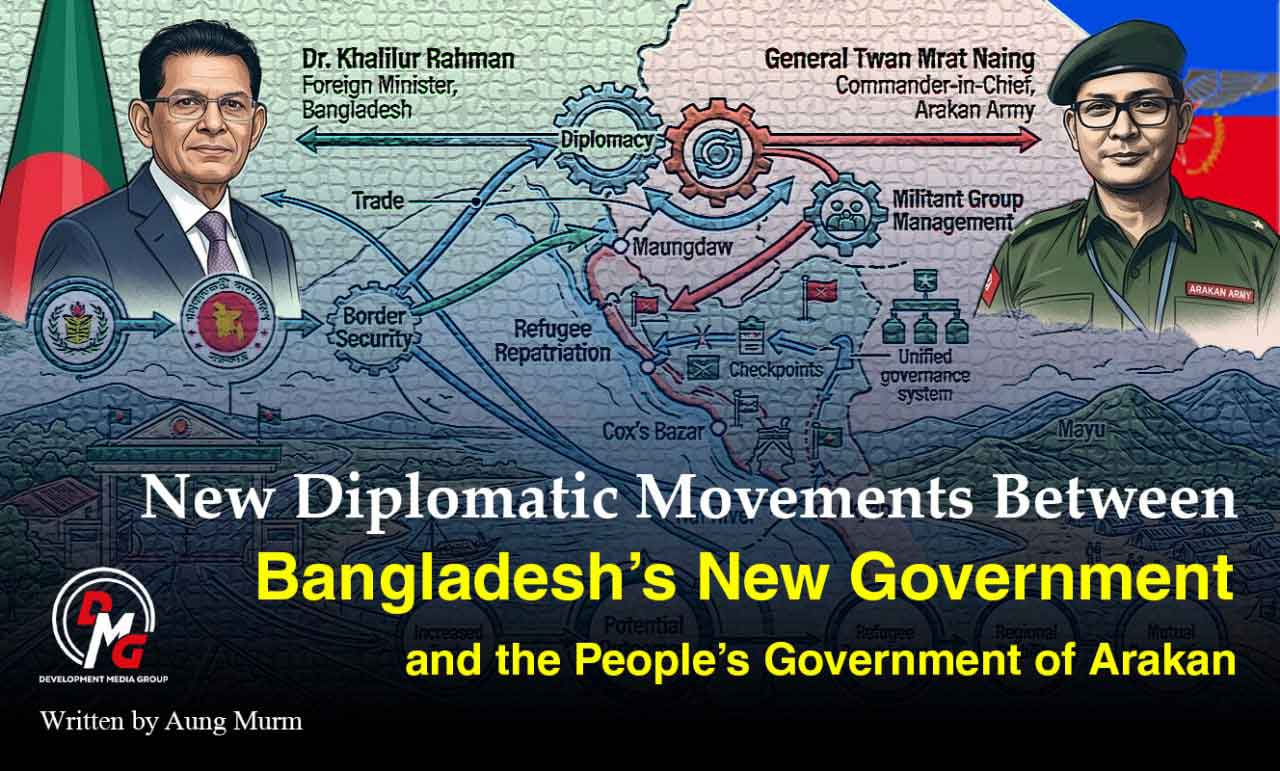- Junta launches major offensive to retake strategic Mawchi mining town
- Extreme poverty drives Sittwe residents to dismantle abandoned houses for income
- Weekly Highlights from Arakan (Feb 23 to March 1, 2026)
- Over 300 political prisoners freed from 10 prisons nationwide
- DMG Editorial: Between War and Opportunity - A New Border Reality for Bangladesh and Arakan
Editorial: When Will Myanmar’s People Know True Independence?
January 4, 2023, marked the 75th anniversary of Myanmar gaining independence from British colonial rule. But Myanmar people have never really tasted the essence of independence.
05 Jan 2023

January 4, 2023, marked the 75th anniversary of Myanmar gaining independence from British colonial rule. But Myanmar people have never really tasted the essence of independence.
For decades, the word “independence” has been little more than an excuse for successive governments to hold ceremonies. Nothing more than that.
General Aung San, who was widely viewed as then-Burma’s independence hero, travelled to England in 1947 to discuss the future of today’s Myanmar. The idea of national unification was mooted only after his trip ended up in failure.
Myanmar is going through the world’s longest-running civil war because the idea of national unity was never really realised. The unification of Burma Proper and Frontier Areas rang hollow. Promises made in the 1947 Panglong Agreement faded away under successive dictatorships.
In an unforgettable remark as he assured equality for ethnic minorities, General Aung San said: “If a Bamar receives one kyat, you [ethnic groups] will also get one kyat.” (The kyat is the Burmese currency.)
But those who came to power after General Aung San have abused his promise, ensuring that Bamar’s have received many kyats for every one kyat to the country’s ethnic minority groups.
The fact that the Communist Party of Burma led by Thakhin Than Tun and the Karen National Defense Organization led by Saw Ba U Gyi started a revolt in 1947 — before independence — shows that there was something wrong with Myanmar’s independence from the start, and indeed even before the start.
Most of Myanmar’s ethnic minorities followed the Karen, and chose armed struggle.
“Our country is not the inheritance of any individual or association, not the private poverty of any individual or association, not a country to be controlled and exploited by any individual or association,” notes the Burmese Declaration of Independence.
But ethnic minorities remain under the authoritarian rule of Burmans and Burmanisation, which forces them to cling to armed struggle.
The current regime and some ethnic armed organisations have struck a deal to work together in the backdrop of a so-called nationwide ceasefire.
Myanmar has been mostly under military rule since independence, with the Myanmar military maintaining de facto control of the country for the majority of its post-independence history. There have been numerous cases of the Myanmar military committing war crimes in border areas where ethnic armed organisations (EAOs) are based.
Even today, when the rest of the world can know what is happening in Myanmar with unprecedented immediacy, the military continues to commit human rights violations and inhumane violence.
People born in Myanmar are losing their birth rights, ethnic rights, and fundamental rights. The freedom is only for a handful of ruling elites.
In conflict zones, the Myanmar military has committed violence against civilians, torched houses, committed sexual assaults, and shelled villages — signs that Myanmar people are not enjoying true freedom in a so-called independent nation.
During the colonial period, Arakan State was one of the first areas to be colonised by the British. But historical documents indicate relatively high standards of education and health in those days, with large numbers of farms.
Seventy-five years on since independence, Myanmar people have suffered for generations at the hands of the ruling elites, the only people who have ever enjoyed some semblance of freedom in Myanmar. A genuine Union is still much a dream for ethnic minorities.
Amid the political ups and downs and twists and turns, ethnic armed groups are still struggling to liberate their people.
For Myanmar citizenship ID holders facing harsh travel restrictions, independence is a bitter word to hear. The essence of independence lies not in monuments and epics, but in the fundamental rights each and every one can enjoy. Collaborative efforts are needed for Myanmar people to enjoy the very essence of independence.








.jpg)











